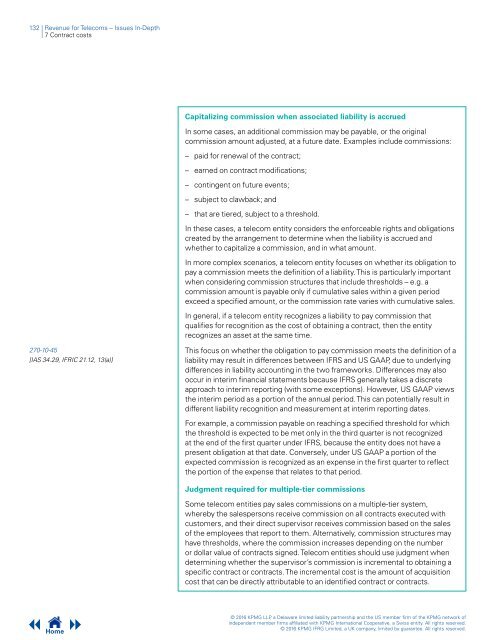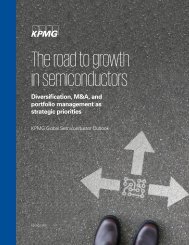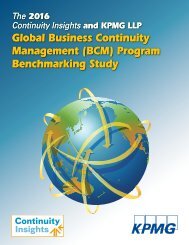Revenue for Telecoms
2cdncba
2cdncba
You also want an ePaper? Increase the reach of your titles
YUMPU automatically turns print PDFs into web optimized ePapers that Google loves.
132 | <strong>Revenue</strong> <strong>for</strong> <strong>Telecoms</strong> – Issues In-Depth<br />
| 7 Contract costs<br />
Capitalizing commission when associated liability is accrued<br />
In some cases, an additional commission may be payable, or the original<br />
commission amount adjusted, at a future date. Examples include commissions:<br />
– paid <strong>for</strong> renewal of the contract;<br />
– earned on contract modifications;<br />
– contingent on future events;<br />
– subject to clawback; and<br />
– that are tiered, subject to a threshold.<br />
In these cases, a telecom entity considers the en<strong>for</strong>ceable rights and obligations<br />
created by the arrangement to determine when the liability is accrued and<br />
whether to capitalize a commission, and in what amount.<br />
In more complex scenarios, a telecom entity focuses on whether its obligation to<br />
pay a commission meets the definition of a liability. This is particularly important<br />
when considering commission structures that include thresholds – e.g. a<br />
commission amount is payable only if cumulative sales within a given period<br />
exceed a specified amount, or the commission rate varies with cumulative sales.<br />
In general, if a telecom entity recognizes a liability to pay commission that<br />
qualifies <strong>for</strong> recognition as the cost of obtaining a contract, then the entity<br />
recognizes an asset at the same time.<br />
270-10-45<br />
[IAS 34.29, IFRIC 21.12, 13(a)]<br />
This focus on whether the obligation to pay commission meets the definition of a<br />
liability may result in differences between IFRS and US GAAP, due to underlying<br />
differences in liability accounting in the two frameworks. Differences may also<br />
occur in interim financial statements because IFRS generally takes a discrete<br />
approach to interim reporting (with some exceptions). However, US GAAP views<br />
the interim period as a portion of the annual period. This can potentially result in<br />
different liability recognition and measurement at interim reporting dates.<br />
For example, a commission payable on reaching a specified threshold <strong>for</strong> which<br />
the threshold is expected to be met only in the third quarter is not recognized<br />
at the end of the first quarter under IFRS, because the entity does not have a<br />
present obligation at that date. Conversely, under US GAAP a portion of the<br />
expected commission is recognized as an expense in the first quarter to reflect<br />
the portion of the expense that relates to that period.<br />
Judgment required <strong>for</strong> multiple-tier commissions<br />
Some telecom entities pay sales commissions on a multiple-tier system,<br />
whereby the salespersons receive commission on all contracts executed with<br />
customers, and their direct supervisor receives commission based on the sales<br />
of the employees that report to them. Alternatively, commission structures may<br />
have thresholds, where the commission increases depending on the number<br />
or dollar value of contracts signed. Telecom entities should use judgment when<br />
determining whether the supervisor’s commission is incremental to obtaining a<br />
specific contract or contracts. The incremental cost is the amount of acquisition<br />
cost that can be directly attributable to an identified contract or contracts.<br />
Home<br />
© 2016 KPMG LLP, a Delaware limited liability partnership and the US member firm of the KPMG network of<br />
independent member firms affiliated with KPMG International Cooperative, a Swiss entity. All rights reserved.<br />
© 2016 KPMG IFRG Limited, a UK company, limited by guarantee. All rights reserved.







